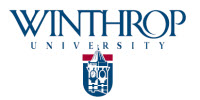Below is a summary of the abstract you submitted. Presenting author(s) is shown in bold.
If any changes need to be made, you can modify the abstract or change the authors.
You can also download a .docx version of this abstract.
If there are any problems, please email Dan at dar78@pitt.edu and he'll take care of them!
This abstract was last modified on March 11, 2022 at 12:01 p.m..

The goal of this research, conducted in partnership with the SEA-GENES program, is to determine the function of all genes within phage Cain’s genome. Currently, 54 genes have been cloned into the plasmid pExTra. Of these, the majority have been successfully transformed into Cain’s host Mycobacterium smegmatis and investigated phenotypically using a cytotoxicity assay. Experimental methods begin with molecular cloning. Each of Cain’s genes are individually amplified via PCR, and inserted into the plasmid pExTra. Purified plasmid samples containing the specific gene are then transformed into Escherichia coli for amplification, followed by transformation into M. smegmatis for the phenotypic assay. This assay assesses the expressed gene product’s impact on host growth and survival. The remainder of Cain’s genes are currently being cloned, with the goal to complete all cytotoxicity assays by the end of the year. It is anticipated that additional genes that have a measurable impact on M. smegmatis will be identified. In parallel with this work, Winthrop SEA program alumni are piloting the use of a Bacteria 2-Hybrid Selection Assay (B2H assay); a protocol that identifies protein-protein interactions between phage proteins and the host cell proteome. The goal of this collaboration is that future GENES students will be able to use the B2H assay to further analyze Cain gene function.
